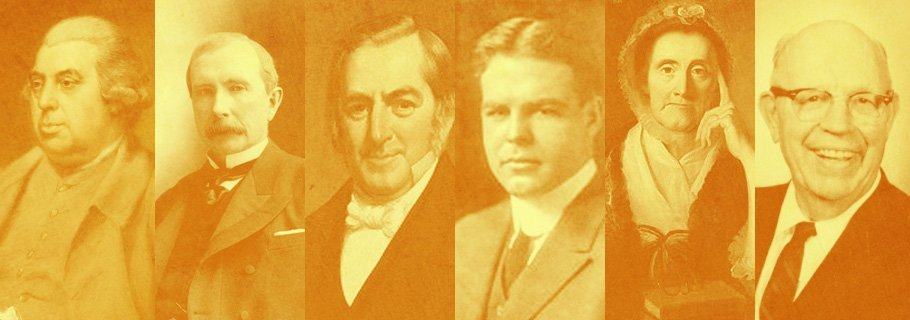Cecil Burke Day was the Christian philanthropist who founded the Days Inn Hotel chain. He was born in Georgia in 1934 and would die of cancer 44 years later in that same state. After dropping out of Mercer University, Day joined the United States Marine Corps and then studied Industrial Management at Georgia Institute of Technology.
As a student at Georgia Tech, Day married Deen Day Sanders, and together they had five children. Over the years, Day became a successful entrepreneur and it was in 1970 that he established the Days Inn chain. It was with the money he earned from that corporation that he became a philanthropist.
His Conversion
Day was a Southern Baptist with a strong belief in biblical values. Because of this, he treated everyone with grace and honor, no matter the person’s social or economic status. After her husband’s death, Deen said,
My late husband was a smart, successful businessman. But more importantly, he was an honest, ethical man. A lifetime of strong Christian faith influenced the way he treated everyone, both inside and outside of the business arena. I think it’s important for students to understand that you don’t have to make a choice between success and ethics. That is Cecil’s legacy to us.
Numerous times, Day himself said, “As I totally depend on Jesus Christ, I continue to grow and feel the assurance of His presence in my life, minute by minute, daily walking with Him, growing in confidence to meet any and all of life’s challenges.” Such people know that laboring in the Lord is never in vain (1 Corinthians 15:58).
His Contributions
Day owned real estate in Atlanta and opened his first Days Inn hotel in 1970 after he sold a duplex for $4 million. Throughout the 70’s, Days Inn encouraged all of their guests to take home a free paperback Bible. Day coined the phrase “budget-luxury” and his hotel chain spread with great success. One of his mottos was, “Find a need, then fill it.” Having realized that Americans had a need for affordable lodging, he sought to fill it. His motels were clean, comfortable, and moderately priced. By filling this need he became very wealthy.
By the time of his death, he had given fully half of his multimillion dollar fortune to churches and other Christian groups such as New Orleans Baptist Theological Seminary. Much of Day’s influence came through others who carried on his work. After his death, his wife, Deen, continued his legacy of philanthropy through the Cecil B. Day Foundation and other charities. She took philanthropy seriously, as she once said, “It means being a steward of what you’ve been given. Nowhere in your walk of life have you earned what you have by yourself. There’s always a team of people helping you.” Likewise, numerous institutions have been named in his honor, including the Cecil B. Day Graduate and Professional Campus of Mercer University, the Cecil B. Day School of Hospitality Administration at Georgia State University, the Cecil B. Day Butterfly Center, and the Day Chapel at Atlanta’s Perimeter Church.










